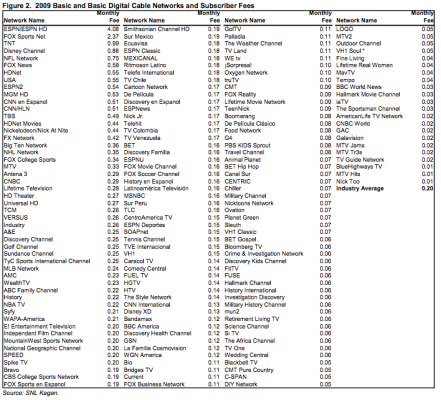Lsbcal
Give me a museum and I'll fill it. (Picasso) Give me a forum ...
We pay about $107/mo now. This includes internet at 50 Mbps. I got the price down by telling them DW would pull the cord if I didn't lower the bill and how I really still wanted the sports stuff. That got me their retention specialist.Just for fun I looked at how many channels we have and actually watch.
I'd be surprised if they all tried to charge $5-6/mo, some would be less or we'd learn to get by with less than 13.
- Our package is called Americas 120, yet it says 190+ channels? We pay just over $70/mo with everything.
- We actually watch 21 of them more than once a year, about 5%.
- There are only 13 we watch regularly.
- So about 95% of the channels could go away and we'd never miss them.
Remember when we were kids and had about 4 channels (3 networks and PBS)?
We have to use Comcast for internet as there are no good alternatives otherwise. We probably only watch about 1 hour per day of TV and that includes PBS news. Occasionally I go on a rampage and record some hours of something like "Cops" or one of those silly food reality shows. Then watch them when I'm about to head off to bed early.
The HD reception is great and I would not want to go back to the old days. It is a luxury but we can afford it. Don't want to leave too much for our heirs.



